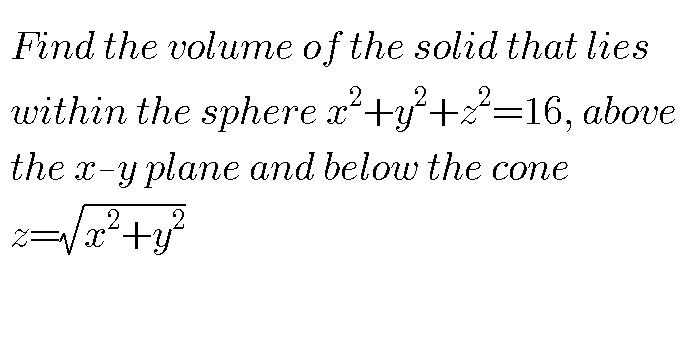
Question and Answers Forum
Question Number 74231 by necxxx last updated on 20/Nov/19

Commented by necxxx last updated on 20/Nov/19

Commented by necxxx last updated on 20/Nov/19

Answered by mind is power last updated on 20/Nov/19
![Z=(√(x^2 +y^2 ))∩(x^2 +y^2 +z^2 =16)⇒2(x^2 +y^2 )=16 ⇒x^2 +y^2 =8 intersection over circle center 0≤r≤4 , −(π/2)≤θ≤(π/2), −π≤α≤π x=rcos(θ)cos(α) y=rcos(θ)sin(α) z=rsin(θ) 0≤Z≤(√(x^2 +y^2 )) ⇒ 0≤rsin(θ)≤(√(r^2 cos^2 (θ)))=rcos(θ) ⇒0≤sin(θ)≤cos(θ)⇒θ∈[0,(π/4)] V=∫_0 ^4 ∫_0 ^(π/4) ∫_(−π) ^π r^2 sin(θ)dαdθdr =∫_0 ^4 r^2 dr.∫_0 ^(π/4) sin(θ)dθ.∫_(−π) ^π dα =((64)/3).(1−((√2)/2)).2π =(2−(√2)).((64π)/3)](Q74243.png)
Commented by necxxx last updated on 25/Nov/19

